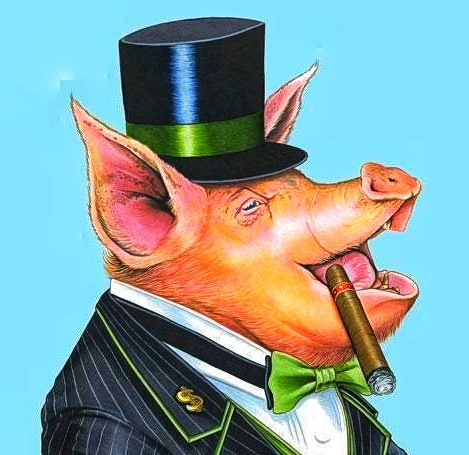Liberals, fascists, and communists all tend to have different artistic preferences. Fascists like Duck Dynasty, liberals like Harry Potter, communists like Parasite. I know people are going to jump down my throat with that last one and there are subjective exceptions but I think you know what I mean. I loved the movie Us, for example, but a lib friend of mine said he "didn't get it." I felt the same after I watched the movie Snowpiercer back when I was a lib. The obvious class politics in that movie repelled me. (I haven't seen it since.)
I also have another idea I want to test out here. I think that the farther you get from the imperial core, the less interested people are in Star Trek / Star Wars. Both of these are basically outgrowths of the Western, so it probably applies to superhero movies too, since these are also just westerns with different costumes. The bad guys in cowboy movies are always the indigenous, and the indigenous are the ones who live in the Global South. Living in South Korea, I was fascinated at the seeming total lack of interest people there had in Star Wars and Star Trek. They also have no interest in Kurosawa movies, at least in my experience, since they aren't really too fond of samurai (and I know Kurosawa didn't just make samurai movies).
I'm out of time, so I'll just reiterate my question: are artistic preferences just another expression of politics / class? If you like or dislike a work of art, is that entirely because of your class or are there other factors?
class obviously has a strong impact on what art you enjoy, but it isn't the end all be all. plenty of liberals and fascists enjoyed parasite, which led to a whole genre of tweets in early 2020. there's a million other examples as well. i feel like westerns are less exclusive to the imperial core than you think, although obviously they take different forms in different cultures. an idealized and stylized depiction of a lawless past where larger than life figures had the chance to shine is a fairly universal genre.
i do have to take issue with the idea that villains in westerns are always indigenous. obviously westerns almost universally don't treat their indigenous characters well, but a lot of westerns don't feature indigenous villains, and many don't have any indigenous people at all, but that's a totally separate can of worms.
I feel like there’s just no way to make an ethical western. The Indigenous are either villains, caricatures, or a sort of blinding, deafening, very present absence. If the Nazis had won the war, they would have made similar films about Eastern Europe.
that's a totally fair perspective. i don't agree completely, but i totally get it. i like westerns, but most of them are kind of morally bankrupt. i think it's totally possible to make a western that has indigenous characters that aren't caricatures, but i don't actually know if its been done.
a lot more people are just watching the movie than engaging with the art, especially when it comes to pop media, so it might not be a good test despite the huge sample size. two people can watch the same piece of media and enjoy it despite having wildly different takes on its supposed political subtext. like the whole thing where attempts at anti-war movies end up becoming the favorite movies of pro-war weirdos.
but to answer your question, actual artistic preferences (or even just aesthetic preferences) are not just derived from politics and class. while people often prefer media that affirms their worldview, emotional state and psychological history are absolutely exercising influence.
But can’t it be argued that emotional state and psychological history are also derived from class? Even if you want to say that someone has a mental illness due to genetics, might that also be a product of family / class history?
I'm sure it could be argued, but not by me and not convincingly.
There is a lot going on here and I think it might be helpful to separate some of it out to see the question better.
Artistic preference has been tied up with media consumption. These aren't exactly the same thing. The idea that Harry Potter is art is a product of how culture and pop culture have become exactly the same. The fact that people define art so broadly to include any written work is also a product of consumerism. You can kind of start talking about post-modernism and post-post-modernism, but I think the mode of production plays an important role in the success of those movements. Therefore the prevalence of how we talk about art and what we consider to be art. So just the way we discuss art is affected by the mode of production.
The next part is that everyone is inundated by media from a young age. Conservatives, reactionaries, and even nazis liked Harry Potter at one point. We're all in a soup of the same ingredients. We all get into something and some of us grow up and move on to other things. Some don't. I don't think that's particular to one's personal politics. Plenty of the left and right are into very childish things. Younger generations suffer arrested development because at some point we never had to give up cartoons or childish things. The market kept offering the same shit to us as we aged. Harry Potter is a good example. All the adult cartoons are another. When you grow out of a cartoon for kids you can get into an edgy animated sitcom. If you want something more deep, you can watch the horse program. If you want to feel smart, you watch Rick and Morty. You get comic book movies that have blood and cursing. You get toys that are vinyl collectables. The line between childhood consumption and adult consumption has blurred for everyone.
Then you have the conscious choice to consume political media because of what you think it says about who you are. People like Parasite because they feel it has a correct or important message about capitalism. Of course they can like it because it's well written or directed too. But people still pick things to like because of its political content. Then you have people who pick stuff to like not because it has the actual political content they think. American History X is a good example. A lot of right wingers like it but it has the opposite message of anything they believe. So you can't categorize something as belonging to a political ideology just because fans of it belong to one.
Upper class small town/exurb businessmen absolutely watch duck dynasty, it makes them feel working class therefore they are hard workers who earned their wealth
This was a whole lot of effort just to bait Trekkies by lumping Star Trek in with Star Wars.
I think preferences are largely a function of culture but to be more specific class/nostalgia/exposure.
class interest: affirmation or rejection of the promoted values/lifestyles/tastes. to go along or against the grain. your perceived relation to the state.
nostalgia: a fondness for things that you previously valued insofar as they aren't in conflict with current values.
exposure: a raising of standards which occurs when the subject is more aware of all possibilities.
ive never heard a beatles song so that means my politics are good
my gut reaction is that theres definitely other factors but it would be really interesting to read more about this
another thing to say is that i was reading this absolutely dogshit book from 1949 talking about classical influence in european literature and he just takes it for granted that independent literary traditions (his first example is Beowulf) are just trash because they aren't like what people wrote in late republican/early imperial rome or classical athens because these are the benchmarks of aesthetic value. extremely common to see when reading old classics scholarship
so in this way it absolutely reflects unexamined cultural assumptions (i don't think most people spend a ton of time thinking about why they like the art they like; i sure don't do that) but i don't know that all those cultural assumptions can be tied back to class alone
are just trash because they aren’t like what people wrote in late republican/early imperial rome or classical athens because these are the benchmarks of aesthetic value.
This is actually a good example though because as a lib I loved the Beatles but now I can’t stand them.
politics/class isn't something that is expressed, it is. everything is political/apolitical etc
I've actually thought about this kind of thing for a long time. There has to be some sort of subtle manipulation to that degree by ad companies, because I remember when I was like 12, I noticed that companies that had similar aesthetics, were pairing up. Take McDonalds and Coca Cola for example. They both play(ed) to the nostalgia of yesteryear very often, and that's why I assume they sell coke products at McDonald's. Plus, their color schemes are similar. Both have striking red imagery.
It started when I realized I didn't like Pepsi, but I preferred burger King. I always wondered why no burger king's ever had coke. Pepsi used to have similar color schemes to burger king, like McDonald's and coke.
I know this is all different now, but it's a great example of how advertisements targeted boomers who were either yuppies (bk/Pepsi) or boomer conservatives who miss the drive in burger joint with an ice cold coke. It divided them along left/right lines.
I'm sure there are a ton of other examples that are better, but I truly believe the fact that I noticed this at such a young age helped push me into realizing that it's us vs them. By that, I mean proles vs bougies
On a different note. Wasnt Stalin really into Western movies ? Or was that just based on a rumour.






